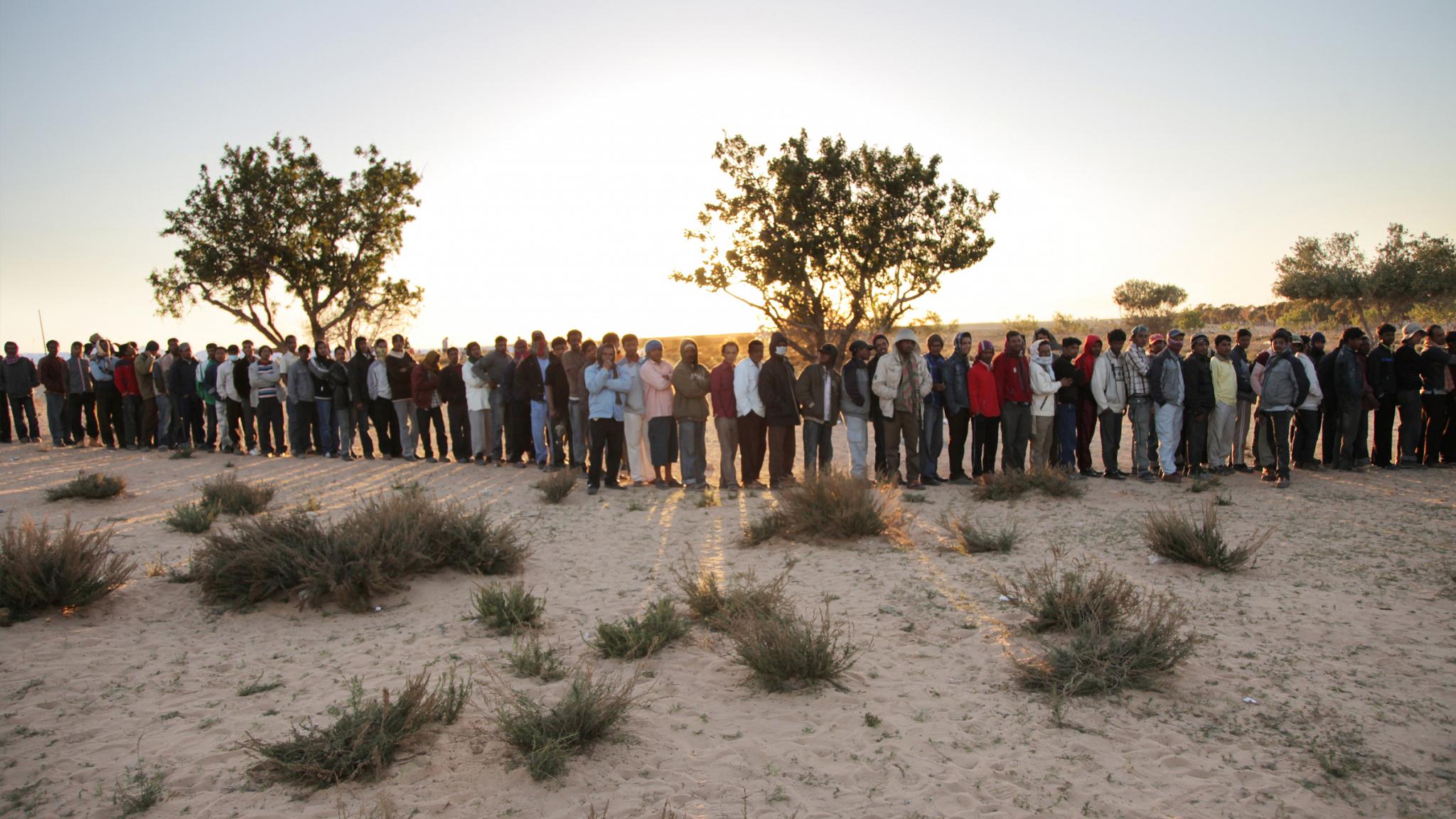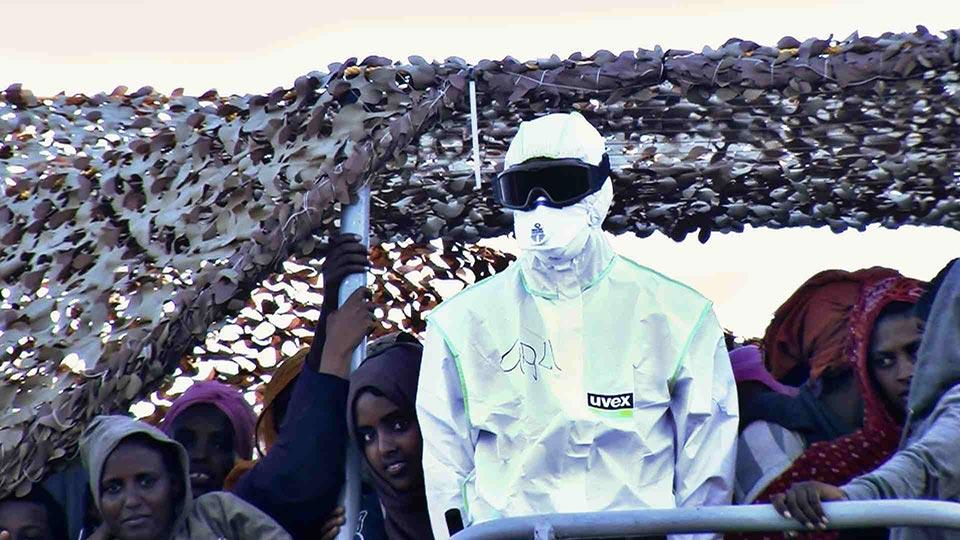Beyond borders – Goldsmiths’ response to the humanitarian crisis
Primary page content
The current humanitarian crisis is the key issue confronting our world – and one which demands a response from all corners of society.

Image: United Nations (CC BY-NC-ND 2.0)
Our staff and students have felt compelled to act, offering financial help and drawing on academic expertise, knowledge and experience to contribute to the wider debate around this most urgent of issues.
We have never seen a summer like it.
Hundreds of thousands of people driven from their homes by war and persecution, risking their lives in pursuit of shelter and safety for themselves and their families.
From research and exhibitions to fund-raising, talks and debates held within the university and the Students’ Union (SU), which is running Refugee Awareness Month in November, this autumn sees a range of activities taking place across the university directly addressing the crisis.
A team of academics with expertise on migration drawn from across the university have launched the Goldsmiths Migration Research Network. The network aims to coordinate activities and events and incubate future research collaborations highlighting our academics’ passion, commitment and intervention in issues around the past, present and future of migration. In keeping with our multi-disciplinary ethos, the Network’s contribution to understanding migration uniquely crosses subject boundaries to examine, explore and contribute.
Among such collaborative work being undertaken here is that of Professor Sue Clayton, from the Department of Media and Communications and Eyal Weizman, Professor of Visual Cultures and director of the Centre for Research Architecture at Goldsmiths.
They have received over £200,000 in funding from the Economic and Social Research Council and Department for International Development to carry out a pioneering project documenting the journeys refugees undertake. This project led by the University of York builds on Professor Clayton’s research documenting the plight of asylum seekers who are deported back to their homeland when they turn eighteen, which is the subject of an interactive installation opening on the Goldsmiths campus in early November.

© (Image copyright Precarious Trajectories)
Academics are also exploring the issue of migration closer to home – on our bookshelves. Department of Educational Studies lecturer Julia Hope wrote her thesis on the growing theme of refugees in children’s literature.
On campus, a Department of Sociology curated exhibition is the launch event for the Migrating Dreams and Nightmares: Materials and Movements project –which takes conceptual and methodological inspiration from John Berger and Jean Mohr’s classic work A Seventh Man in exploring the expressions of migration.
On the big screen, Goldsmiths’ Media Forum and The Centre for the Study of Global Media and Democracy are organising a Human Rights Film Festival, which runs until the beginning of December. It features free screenings of films like A Syrian Love Story followed by a Q&A with the director.
After hosting the Mayor of Palermo Leoluca Orlando – the Sicilian politician and human rights campaigner who said the EU stood accused of committing “genocide” due to its inaction to the crisis during the summer – we will welcome more high-profile speakers to New Cross.
The end of November sees Ewen Macleod, director of the Policy Development and Evaluation Service at the UN High Commissioner for Refugees, deliver a keynote speech at the university.
Our academics also contribute away from campus – with Jon Martyn, tutor on MA Art Psychotherapy, opening a new therapeutic art studio for refugees and asylum seekers. From previous work undertaken at Goldsmiths, it’s clear just how vital a contribution this can make to the displaced.
Our students and their representatives are also playing a vital part. The SU’s Education Officer Danny Nasr was one of the driving forces behind the university’s new scholarships – with Department of Design alumni Danny also spending the summer in the Lebanon establishing a school with the goal of creating an open-source education model.
The SU is holding a number of events including an exhibition in partnership with Amnesty exploring the journeys migrants undertake.
In the most immediate terms, the university and the SU have been collecting clothes, food and other aid items for the refugees in Calais – so we are very much helping in the here and now.
But we also want to use education, that most sustainable of resources, as a tool to truly effect change. We want our knowledge, experience and ability to influence the policy-makers.
Most importantly we want to help empower the displaced – and help make their lives better.